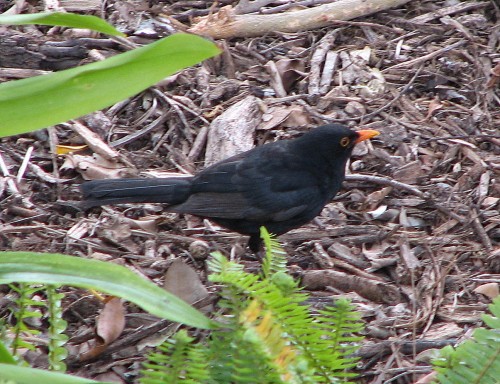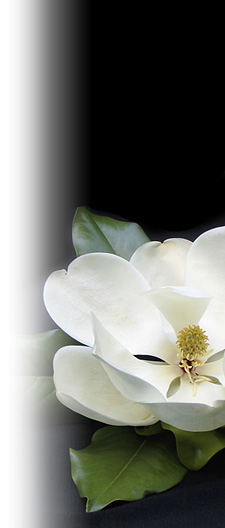Tanka #3 Blackbird
At first light of dawn
Crisp white frost covers green grass.
A lone blackbird sings
His rich, melodious song
Of praises to the new day.
Copyright 2011 Trevor Hampel
All rights reserved.
Read more of my poetry here.
How to write a pantoum poem
Yesterday I wrote about how I write poetry.
It’s a simple formula and one that usually works for me. My only regret is that I far too often either don’t have the time to devote to poetry – or I don’t make the time. As a prize winning poet I know I should be writing more.
The regular monthly poetry writers’ group I attend is one thing that keeps me writing poetry on a regular basis. Each month we set a writing challenge for the following meeting. Some of the challenges last year were really inspiring, and hearing everyone’s take on the one challenge is very interesting. The critiquing of each poem is also valuable. There are many benefits to belonging to a writers’ group.
In this coming month we were set the task of writing a pantoum on the theme of obsession. Now, I’ve never written a pantoum and have resisted doing so until now. I thought it was too hard, too complex. I was wrong. A few days ago I managed to write a pantoum called Obsessed by Sonnets. That’s right – I wrote a pantoum about writing sonnets! Go figure.
What is a pantoum?
Good question.
It is a poem of Malay origins and has undergone a few adaptations on its way into English poetry circles via the French. Essentially it consists of the following:
- A set of four lined stanzas (quatrains) – anything from three stanzas and up.
- It has a simple abab rhyming pattern throughout.
- It is often metred but I believe that this is not a strict rule. However, metred poems always sound wonderful when read aloud.
- Lines are repeated in a strict pattern.
- Lines 2 and 4 of the each stanza become 1st and 3rd lines of the next stanza. This is repeated throughout the poem until the last stanza.
- In the last stanza, the so far unrepeated 1st and 3rd lines of the first stanza become the 2nd and 4th lines – but in reverse order. This means the poem comes full circle and the last line is a repeat of the first line of the poem. This gives the whole work a very satisfying feel to it.
I’ll now be very brave and publish here a pantoum I wrote this afternoon. Note that a few words here and there have been changed to make grammatical or narrative sense.
What is a pantoum?
A pantoum is challenging to write,
It’s a poem of elegance and grace.
With stanzas of four lines – that’s right –
And a rhyming pattern to face.
It’s a poem of elegance and grace,
With quatrains for stanzas I’m sure,
And a rhyming pattern to face,
Not to mention a message that’s pure.
With quatrains for stanzas I’m sure,
And a metre so regular too,
I won’t mention my message so pure,
For I’m planning to entertain you.
It’s my metre that’s regular too,
With stanzas of four lines – that’s right –
For I’m planning to entertain you
With a pantoum that’s challenging to write.
All rights reserved.
Copyright 2010 Trevor Hampel.
My latest publishing venture
Now for something a little different.
I’ve had another poem published, this time in a small collection of poems called a chap book. There’s quite a story to this poem being published.
Every month I attend a poetry writers’ group at the university where I have almost completed my Master of Arts in Creative Writing. Poetry writing has been a love of mine for decades, but it is only now that I’m having some small publication successes. Poetry was a big part of the course and my skills have definitely improved in the last 2 years.
Every month we set a poetry writing challenge for the next meeting. One of the challenges last year was to write a poem on the theme of poverty (the Global Financial Crisis even crept into our little group). Some of the poems were brilliant and deserved a much wider audience than the group. We decided that this was to be the the first compilation published by the group.
I was nominated to be one of the three editors and I also set up the design of the booklet. We called it Shifting Sands. We had a very successful launch at our monthly meeting last Thursday. Normally we might only have about 5-7 members attend. This time we had 14 people present (including 3 new members) despite at least 3 or our regular attendees being away.
This month our theme was New Year’s Resolutions and the standard was extremely high. As a result we are now planning our next publication.
Good writing.


 In due season: poems of love and loss by Valerie Volk is a very special book. It is beautifully presented with delightful photographs illustrating many of the poems.
In due season: poems of love and loss by Valerie Volk is a very special book. It is beautifully presented with delightful photographs illustrating many of the poems.